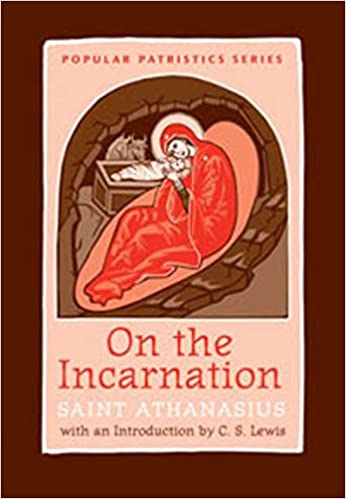
Athanasius’ On the Incarnation is certainly one of my all time favorite theological works. The Latin title of the book, written sometime during the 4th century, is De incarnatione Verbi Dei (On the Incarnation of God’s Word). In the book Athanasius explains why the incarnation is so central to the gospel. By becoming a human being the Word of God has joined itself to humanity, not just in, e.g., a contractual manner, but in a real ontological manner.
Like other Alexandrian theologians before him, such as Clement and Origen, Athanasius emphasizes human participation in Christ’s death and resurrection. With Paul he affirms that all have died with Christ (cf. 2 Cor. 5:14), because of our union with Christ through his incarnation. In this way the atonement on the cross is not so much about a forensic payment on our behalf as it is about our participation in the death and resurrection of Christ.
Athanasius tirelessly affirms the universal scope of Christ’s work, frequently referring to Christ as the “Savior of all” (De in. 21), even if he can at times also warn against the “eternal fire and outer darkness” (De in. 56) (it could be argued, though, that ‘eternal’ does not here mean of infinite duration, see Ilaria Ramelli’s book on The Christian Doctrine of Apokatastasis). The general mood of Athanasius’ treatise is one of wide-ranging hope and joy in the gospel. As such On the Incarnation is a good introduction to the central elements of the gospel.
“Therefore the body, as it had the common substance of all bodies, was a human body. If it was constituted by a new miracle from a virgin only, yet being mortal it died in conformity with those like it. Yet by the coming of the Word into it, it was no longer corruptible by its own nature but because of the indwelling Word of God it became immune from corruption. And thus it happened that both things occurred together in a paradoxical manner: the death of all was completed in the lordly body, and also death and corruption were destroyed by the Word in it. For there was need of death, and death on behalf of all had to take place, so that what was required by all might occur.” (De in. 20)
An older translation is available here.
